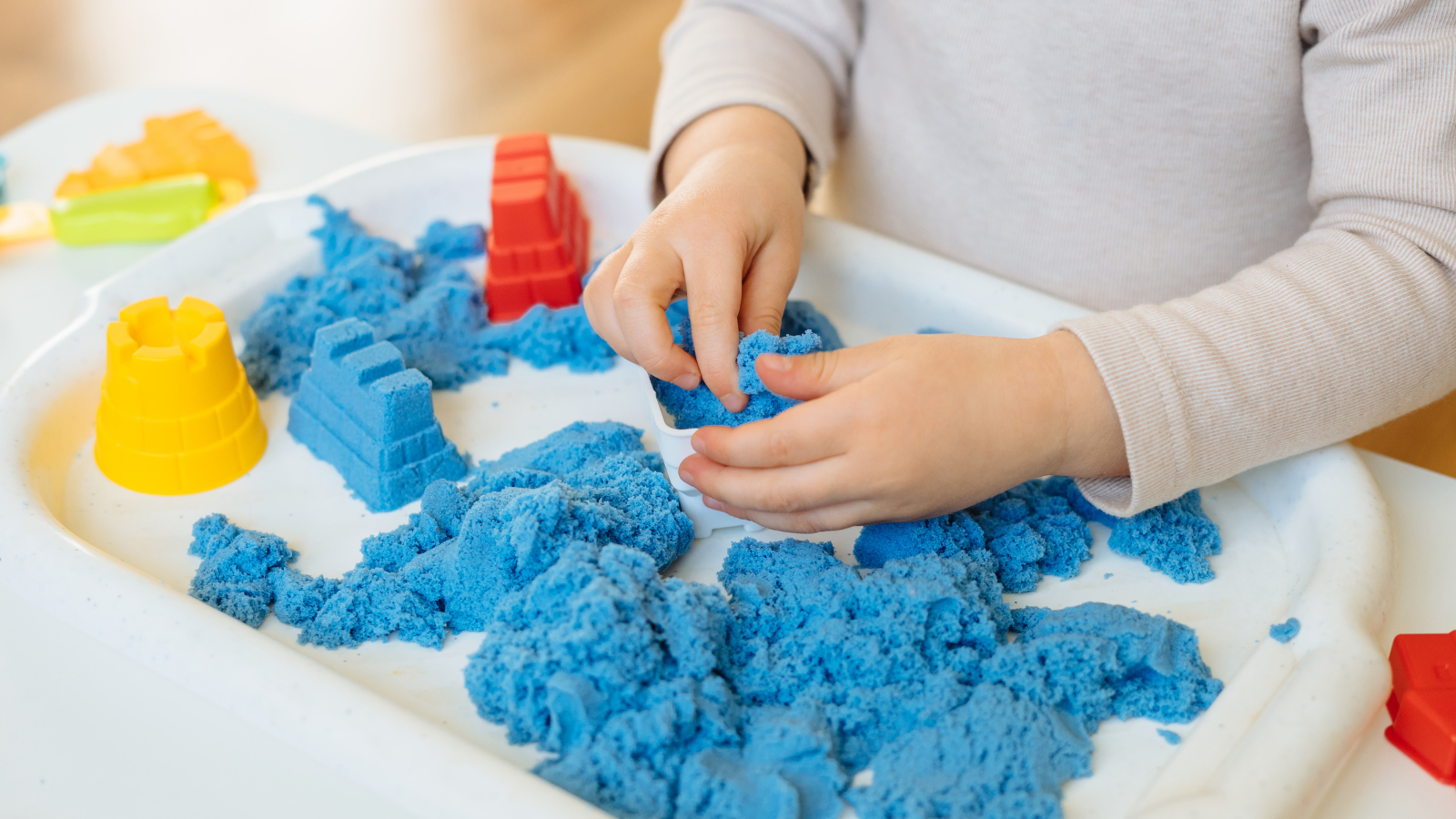In the busy world of early childhood development, sensory play is a vital part of how children grow and learn. For parents and teachers, knowing how sensory play works can change the way we help and teach young children. Let’s explore what sensory play is, why it’s essential, and the many benefits it brings to infants and toddlers.
At Paramus Daycare, we nurture the complete development of every child through exceptional programs led by certified educators. Our diverse educational approach offers specialized preschool programs tailored by age, featuring Creative Curriculum Preschool Language Immersion, Messy Art Education Music Enrichment Program, and Exciting Camp Activities. Serving families in Ridgewood, Oradell, Emerson, and Paramus, we invite you to call us at (201) 500-2951 to discover our enriching curriculum. We can’t wait to connect with you!
What is Sensory Play?
Sensory play involves activities designed to engage and stimulate a child’s senses: sight, sound, touch, taste, and smell. These activities encourage children to explore and learn through sensory experiences, often simultaneously integrating multiple senses. Sensory play can include a wide range of experiences, such as:
- Tactile Exploration: Playing with sand, water, or playdough to feel different textures and sensations.
- Auditory Stimulation: Using musical instruments, listening to various sounds, or engaging in rhythm and music activities.
- Visual Stimulation: Exploring bright colors, patterns, and shapes through art projects, light tables, or colored gels.
- Gustatory Experiences: Tasting new and diverse foods to discover different flavors and textures.
- Olfactory Exploration: Smelling various scents from natural sources like flowers or scented materials.
The Intention of Sensory Play
Children may learn about the world via sensory play. using their senses, like touch, sight, and hearing. When kids explore with their senses, they make connections in their brains that help them understand their surroundings better. Sensory play also supports their overall growth, including thinking skills, motor skills, language skills, and social and emotional development.
The Significance of Sensory Play
Sensory play is not just about keeping children entertained; it is a crucial component of early childhood development. Engaging in sensory activities helps children make sense of the world, encourages curiosity, and supports their overall growth in several key areas:
The advantages of sensory play for young children
Cognitive Development
Sensory play promotes cognitive growth by encouraging problem-solving, decision-making, and critical thinking. As children interact with different materials and experiences, they learn to observe, compare, and analyze their surroundings. For example, playing with water can teach concepts of volume, cause and effect, and even early scientific principles.
Motor Skills Enhancement
Fine and gross motor skills are significantly enhanced through sensory play. Activities like squeezing playdough, pouring water, or threading Beads aid in the development of hand-eye coordination and fine motor abilities. Meanwhile, more physical activities like jumping on a trampoline or navigating an obstacle course can improve gross motor skills, balance, and spatial awareness.
Language Development
Sensory play provides a rich context for language development. As children explore new textures, sounds, and objects, they are introduced to new vocabulary and concepts. Engaging in sensory activities with caregivers or peers encourages communication as children describe their experiences, ask questions, and follow instructions.
Social and Emotional Growth
Social and emotional development is another significant benefit of sensory play. When children engage in sensory activities with others, students pick up vital social skills including sharing, dividing tasks, and cooperating. Sensory play also offers opportunities for emotional expression and regulation, as children can explore their feelings and find comfort in tactile experiences like squishing playdough or cuddling a soft toy.
Conclusion
Incorporating sensory play into infants’ and toddlers’ daily routines is a powerful way to support their development across multiple domains. By understanding the role of sensory play and intentionally providing diverse sensory experiences, we can create a nurturing environment that fosters exploration, learning, and growth. As we embrace sensory play, we unlock a world of possibilities for our children, establishing the groundwork for a lifetime of inquiry and learning.






